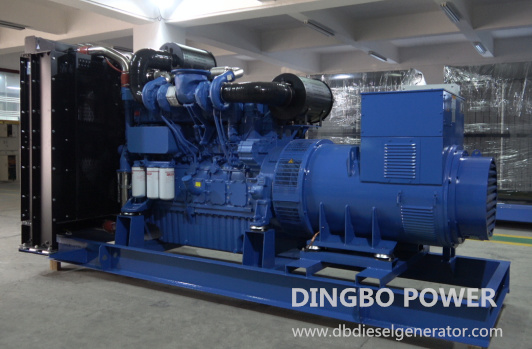Diesel generators are renowned for their robustness, reliability and longevity. They are ideal for the requirements of commercial and industrial applications of nearly every kind. How many years can a diesel generator last? In this article, we’ll introduce the average diesel generator life expectancy as well as the factors that affect its lifespan.
How many years does a diesel generator last?
Generally, the lifespan of a diesel electricity generator can be expected to last for up to 30 years. On average, diesel generators can last from 10,000 to 30,000 hours of runtime before major overhauls or replacements are necessary. Please note that this is only an approximate estimate. Many factors can affect the lifespan of a diesel engine generator, such as usage patterns, environmental conditions, and preventive maintenance practices. For example, a standby diesel generator used only for emergencies is going to hit the 10,000-hour mark a lot later than one that is used constantly.

Factors that affect your diesel generator’s longevity
The life expectancy of a diesel generator depends on three main factors: how it’s used, generator sizing and maintenance practices.
Usage patterns
If your diesel-powered generator is often overworked, there will be more wear and tear on the equipment, which can reduce the lifespan of the generator. Every machinery needs rest and it should never be left to run for weeks or months at a time. Running your standby diesel generator longer than the recommended use period can damage the generator.
On the other hand, if your generator sits idle for an extended period of time, issues such as increased friction, battery discharge or fuel degradation could arise. Over time, they could reduce the generator's lifespan. It is important to take certain measures to ensure that it is properly stored and maintained.
Generator sizing
Improper size of your generator also reduces the generator’s longevity. Typically, standby and prime power diesel generators are designed to run optimally between 50 and 80% of their total load rating and continuous-rated diesel generator sets are optimized between 70 and 100 percent load.
An oversized diesel power generator underloads most of the time, which results in a greater internal build-up of carbon and other byproducts of combustion in the engine, causing a power loss. This phenomenon is also called wet stacking. If your diesel generator is too small and can’t meet the electricity demands, it can cause issues such as generator shutdown, damage to the internal components, engine overheating, increased fuel consumption and increased emissions.
A diesel generator too big or too small will shorten the lifespan of your generator. Thus, it’s vital to choose the right generator size when you are buying a diesel-powered generator. Read more about how to choose the right size generator.
Maintenance practices
The lifespan of a well-maintained diesel generator will be longer than a poorly-maintained one. It’s important to maintain your generator regularly to prevent potential problems and prolong its lifespan, resulting in cost savings in the long run. Routine maintenance helps to ensure that your generator will run smoothly and efficiently during a power failure.
Preventive maintenance of a diesel generator involves routine inspections, periodic analysis of fluids such as engine oil, coolant and diesel fuel, regular cleaning and maintenance of the fuel system, checking electrical system, cleaning or replacing the air filter, maintaining the battery, load bank testing, etc.
Other factors that also affect the diesel generator life expectancy:
Generator brand and the level of quality
Size of the generator’s engine
Installation method
The quality of fuel used and fuel problems
Environmental conditions, like altitude, humidity, extreme weather and so on
Availability of spare parts, particularly for older or outdated generators
Understanding these helps you keep your generator up and running and prolong its lifespan. To extend the generator’s life expectancy, you'd better follow the instructions given by your generator’s manufacturer for guidance.
In conclusion
The lifespan of a diesel generator depends on a number of factors, including how it’s used, generator sizing, maintenance practices, generator brand and quality, engine size, installed method, fuel quality, environmental conditions, etc. A well-maintained diesel generator can last for up to 30,000 hours. Without proper care and attention, its life expectancy will be reduced.
Are you looking for a reliable and efficient power generator? Are you wondering how to maintain your generator and prolong its lifespan? Contact us today. Dingbo Power is a professional diesel generator manufacture with more than 17 years of experience. Feel free to contact us with any questions, concerns, or inquiries to learn more about the products & services we provide.
Comments
Post a Comment